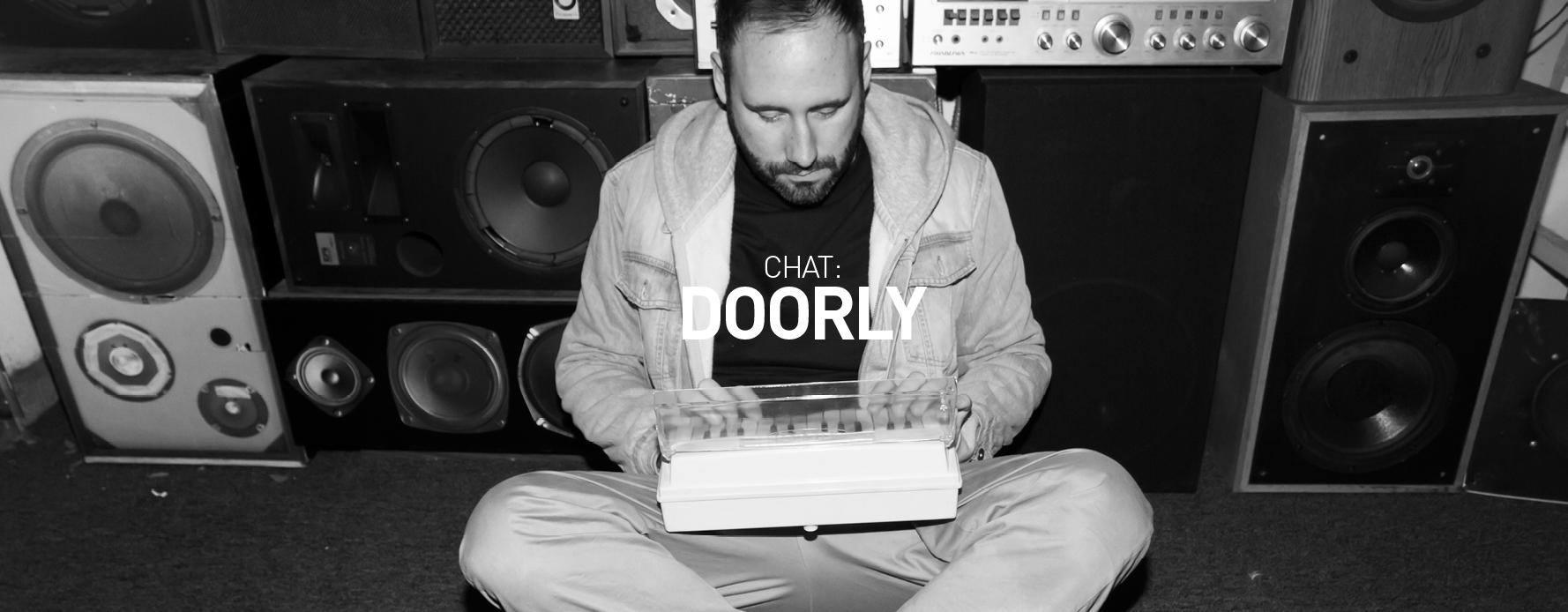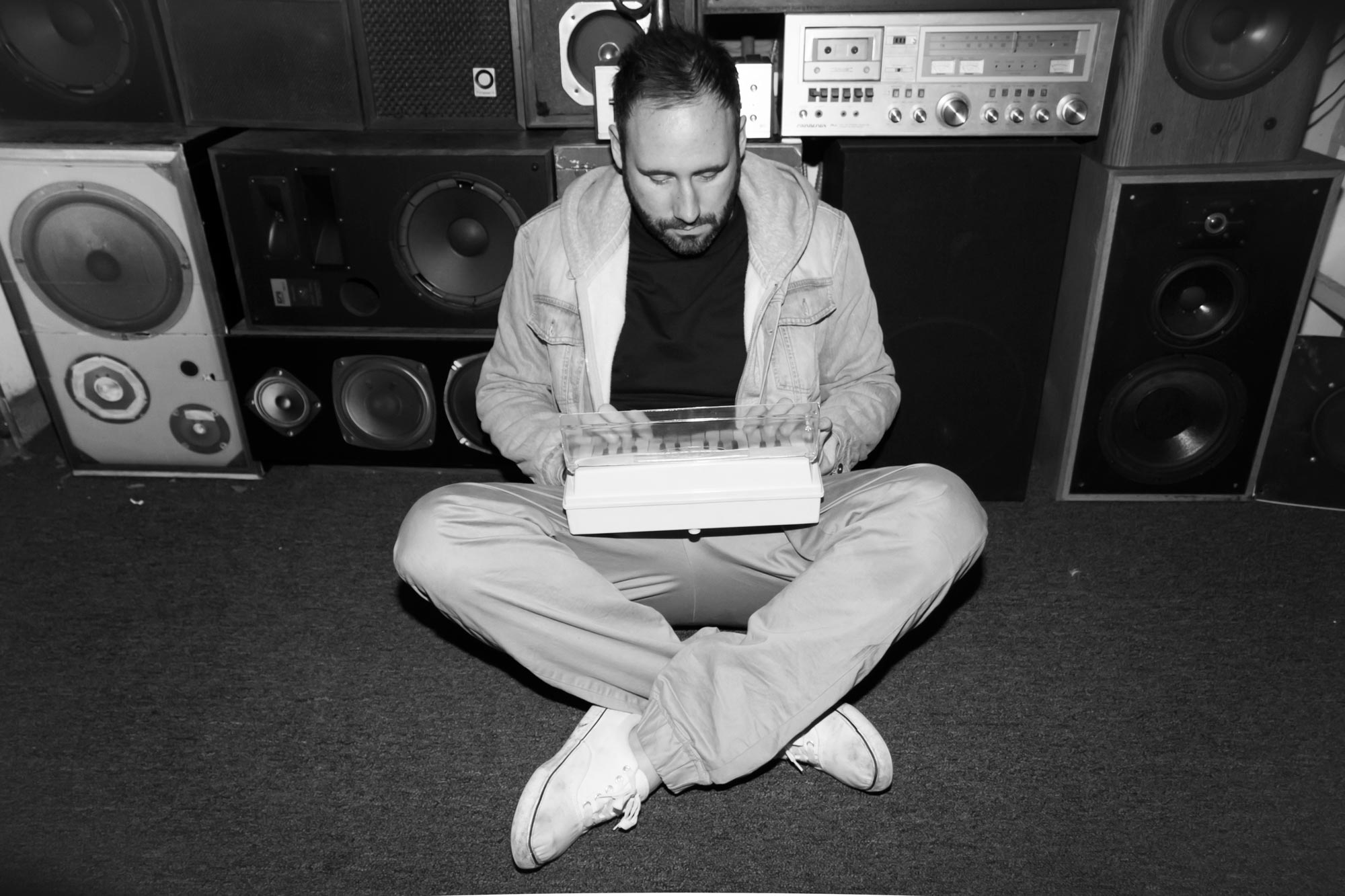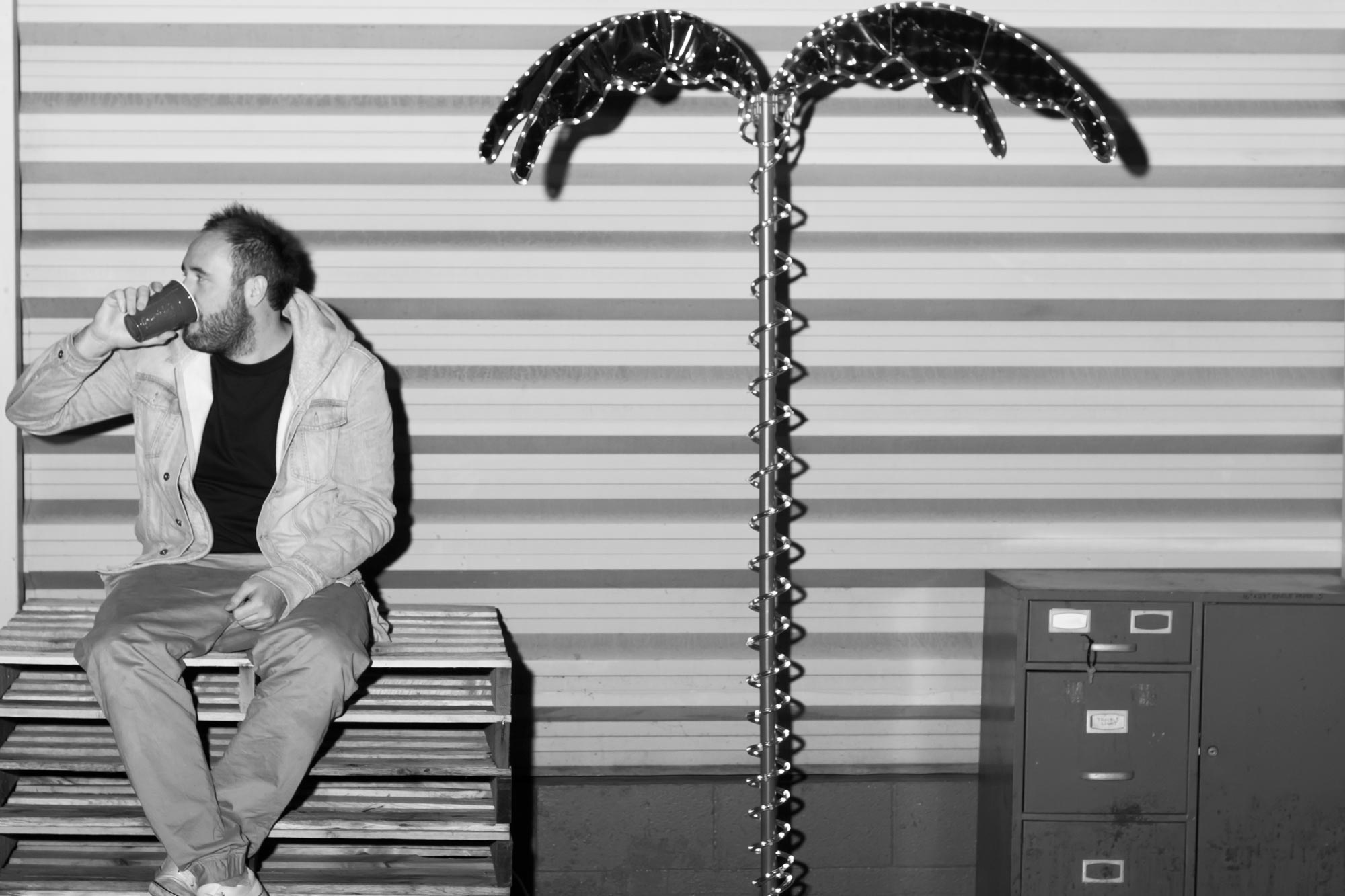Doorly: Industrious
 Thirsty for JUICE content? Quench your cravings on our Instagram, TikTok and WhatsApp
Thirsty for JUICE content? Quench your cravings on our Instagram, TikTok and WhatsApp

Martin Doorly is a man of countless activities and projects; if he is not booked for gigs in various parts of the globe or performing at his Ibiza residency, he is booking prestigious acts for his many parties, namely his long-running Doorly & Friends series at the UK’s Ministry of Sound. Wholly embodying the often adjoined term of ‘DJ’ and ‘producer’, Doorly’s musical prowess is evidenced from his extensive repertoire of remixes that saw him featured on venerable labels such as Dirtybird and Toolroom Records, and his incredibly skilled dexterity on the turntables. JUICE spoke to the LA-based Brit to chat about an assortment of subjects, from his vigorous work ethic to the apparent snobbishness of London dance fans.
You’ve constantly said that you regretted your English degree and would have opted for a music production course instead. Do you think that formal education in that aspect is important as opposed to practical experience?
Well, it depends on what type of career that you want, really. If you wanna be a DJ, then there’s absolutely no point in having an English degree. I mean, I’m a music producer now because I taught myself afterwards, but if I’ve done a course in it before, I’d have probably been years ahead and probably be a lot technically better than I am now. I’ve found my own sound with what I do but it’d be nice to be able to have a formal education in that. I totally wished that I’d done that instead of an English degree, totally. So yeah (laughs).
Also, you described yourself as a DJ who produces rather than the other way round; but you also said that it’s important to produce music in order to get your name out. Do you still feel the same way?
Totally. I was always a DJ and I reached a ceiling in the UK where I kind of played the best clubs but I was always the bottom of the bill. As soon you start making music, then you start moving up the bill. The first track that I had released instantly got me known and it got me booked in Asia and America and stuff. There was one year when I toured so much as a DJ because I thought, “Wow, I’ve done it now.” I kind of toured for a year, without making any music, and I quickly started dropping down the bill again because people kind of forget about you, kids grow up and move on and there’s a new breed of people who come in for the first time listening to the music for the first time – I think if you haven’t done anything for 12 months, then there’s this new breed of people who don’t know who you are, then you become irrelevant. You’ve got to keep on topping it – it’s so important.
Is that why you’re constantly producing and making music?
Yeah, I’m trying to be prolific now, like at least to release [something new] every three months. If not, [maybe] just kind of a remix of something – keep stuff in the Beatport charts, keep trying to make sure that I’m in other people’s DJ sets all the time.
Doing remixes is still important even though you’re more widely known now?
When it’s the right track, a good remix can be bigger than any track – like the ‘Bugatti’ remix I did for Tiga really did more for me in Asia. Sometimes doing a remix, it takes a lot less time than an original track and it can do so much for you, like if it’s a good track with good vocals and a good concept, then all you have to do is add a little fun to it and it can do so much good for you. I love remixing, it’s kind of like… I wish it were three remixes sometimes, it’s so much easier, it’s so much less pressure than especially working with vocals and things like that.
You have a residency in Ibiza and you live in LA, why is the sunny climate so conducive to your music?
I suppose I’m just happier in the sunshine, I think everybody is, right? I suppose there is something about being in warm weather and being able to be outside and being happy that makes my music happy as well. I just generally struggled to motivate myself when it’s cold or raining, like just going out of the house or anything and making music is the same really – it’s a motivational thing, really. I get up in the morning, I play football or something, eat something healthy, and I feel great.
We know that one of the major reasons you left the UK was because of the cynicism in the music scene there. Do you still harbour that love-hate relationship with the UK now that you’re more secure in your career?
Good question! Yeah, I still do. There’s still resistance in the UK on everything. As soon as something is popular, it meets resistance from the UK. There’s love there as well; the reason why British people are so bitter and take things like over-the-top seriously, it’s the same reason why we’re leading the way in the world when we play new music and new genres and stuff like that. It’s because we’re always trying to stay ahead of it. It’s good, and the gigs are always great and the crowds are the most educated in the world. But yeah, it is like… it is the kind of place where people write on forums—I’ve never experienced that anywhere else in the world, except for England. Everyone else seems so positive and I never see hate-y comments or anything, except in England. When it’s the Boiler Room, it’s always British people who are slagging people off. It’s weird, I don’t know what our problem is…
Like any other artistes, you have a problem with being pigeonholed – you even have a label called Pigeonhole This! – however, you’re primarily known as a house DJ, why are you comfortable with being associated with this genre rather than the others?
It’s not so much that I don’t like being pigeonholed, it’s because I was always a house DJ, I kind of experimented with this dubstep thing, it got way out of hand, like so quickly, like all of a sudden I was a dubstep DJ. The reason I set up this Pigeonhole This! label was to make this big expression that I didn’t want to be pigeonholed because I thought I could do both – like I could get away with this dubstep thing but also keep doing house and something that I was more passionate about, but you know, it’s not possible to be both, you have to pick one, so I picked the one that I was actually into. So now, I’m perfectly okay with being pigeonholed as a house music producer, it was a polite way to say, “Hey, I’m not a dubstep DJ!” It was a period in my career where I was a bit naïve, thinking that I could be everything to everybody, I was a jack of all trades but a master of none, really. I just needed to focus back on something that I cared about because it was quite obvious in the end that I hated the music I was making and playing (laughs).

You’re travelling and doing so much – you even have to resort to making music in hotel rooms and on planes. Have you considered taking a break from the busy schedule so you can properly make music in a studio?
I do, I mean, we are quite tactical with it. Next week, we go home – and I’m kinda home for two weeks – and I’m doing gigs on the weekends but I got two blocks of five days off in the studio. Luckily, I’ve learnt to work quite well on my laptop, on planes, in hotels… I’ve made a track this week, for example, but the thing is it’s good to get ideas down but you’ve got to go to the studio to get things sounding right, that’s when I’ll go home, so I’d spend some time finishing that release and that will be my summer pretty much done. I did use to forget about that, but we do try to make sure that I take [days] off – but it’s hard to take weekends off. Especially since moving to LA, I don’t take gigs, but when I was in London, I took gigs all the time because I didn’t want to be in London. I would deliberately say that there’s no point for me flying off to Boston just to do one gig, I’ll wait. I’ll just stay at home and make music. It’s what feeds everything else.
You throw a lot of parties as well, how do you find time to select the performing acts?
Again, it’s something I do on the road as well. Well, basically with each event, it’s usually with a team of people, so say my Ministry of Sound party, I choose the acts, book them, I’ll speak to the agents and the artistes, and get them on board as soon as they give the thumbs up. Then I’ll hand it over and the rest of it gets handled by a team of people to do all the contracts and stuff. I just turn up and have fun with them, really. It’s really a nice way of doing things, it wasn’t always that easy, I’ve been doing parties for 15 years, from designing the poster, putting posters up myself, handing them out, pouring drinks for DJs, to driving them to the airport. But luckily now I’m at that level where I have people doing it for me. In Ibiza, in smaller parties, I still do it, but with these parties, it’s like a branding thing now. So, I help them get artistes that they wouldn’t…We kind of form a vibe for the party with the right acts and stuff – it’s still very time consuming. I’m booking 15 different parties at the moment amidst making music and travelling and DJing and stuff.
Is Shelter an evolution of your residency there?
Totally, yeah. We’ve kind of through the years started with Ibiza Rocks and then electronic music started becoming [bigger]… there was always electronic music in Ibiza but they were more dubstep and d’n’b. We were booking live bands and Pendulum, so we decided to do a spin-off of that, booked them as DJs with everyone else and booked everyone for the first time – and the island was like screaming. That kind of morphed into We Are Rockstars, which is a live version of dance music; live dance bands and Disclosure and stuff like that kind of happened. Then, [Shelter] is the after-hours version of that, really. It’s kind of like every year we start something new, there are always gaps to be filled and once we’ve secured them, there’re even smaller gaps that need to be filled to join the dots between them. So, it’s good we’ve got a really good spread on the island.
Could you tell us how did you get involved with the Nokia project with Nicki Minaj?
(Laughs) It was just crazy. My management just kind of came to me with it, I think they wanted their own version of a Nicki Minaj track to do this live production thing in New York, in Times Square. I think they came originally for Fatboy Slim, who’s with my management, and they said he doesn’t want to do it but Doorly will (laughs) and I was like “Okay.” Basically, I had to work with her to get the track, it was the longest running remix I’ve ever done, there were like ten people involved in it so everyone had to approve it. Then they designed the visuals in Times Square and they took over the whole screens and designed for it to take over for three minutes with animated series of events that happened. I played the remix and fist-pumped with Nicki Minaj singing (laughs). It was the most ridiculous [thing]… so weird. I was just this DJ from Huddersfield, who was just making waves as a DJ, thrust into that and then I had to do a red carpet with Nicki and all that, it was just so weird.
Since you’ve moved to LA, do you find that the Americans’ taste for dance is geared towards EDM?
At first there was none. This dubstep thing kind of happened, I was getting booked for clubs and they were all playing hip hop and it was kind of tricking them… well, I was playing hip hop but I was playing dubstep and house [as well], just kind of mashing it up. And my gigs were more fascinating for the crowd because I’m a turntablist and they’d be into it because of my tricks and stuff. A short attention span wouldn’t matter because of that. Skrillex was my warm up DJ a few times and I was a bit pissed off. They kept putting him before me, and you heard his music, his music is like (screams) and I’m more into the deeper music, whatever genre. It was really hard to follow him, put him after me and I don’t care if I’m the headliner [or not]. And then within two months, it just went stratospheric and EDM happened. I was like going with it for a while, but now three years in, Dirtybird and Hot Creations really had an impact and house music is amazing now – it’s one of the best territories now. It’s probably last year where it came into its own and everyone was moving away from EDM. Anyone who goes into music gets into the hard music straightaway. First time you go clubbing, you go for the hardest stuff possible ‘cos you’re like “Yeah!” and then a few years later, you grow up a bit and you look for something a little bit deeper. What’s happening is everyone in America discovered dance music at the same time and they’re all like “Ah! Skrillex! EDM!” And now they’re all three years older going, “Um, I don’t know if I wanna go to that now. I just wanna have a chill night, have a nice night out.” But obviously there’s a whole new breed of people coming into EDM and so it’s getting bigger. But there’s also an older crowd that are house music fans, it’s ridiculous how it’s all happening in one big swoop.
What do you think of the EDM satire news site Wunderground? Does it prove that EDM is nothing more than a joke now?
It’s brilliant. I saw one today about the Simon Cowell making this DJ pop show and Steve Aoki is the judge. So there was a Wunderground article where it went, “Steve Aoki got voted out as a DJ thing and he wasn’t even in the contest.” (Laughs) Poor guy, he’s a nice enough bloke but he gets so much [shit]… but he’s still like number one. It’s how you react to it. The way they react to them just makes them want to wind them up even more. It’s so good that Wunderground is a thing.
House seems to be the go-to genre when dance fans want to prove that they’re legit. What do you think of this?
Well, it just is. Anything else has just gone [mainstream]… well, house music is going pop-y in areas. But I mean, there’s legit hip hop but there isn’t legit EDM, there isn’t legit trance. There is legit dubstep, but it’s just like house music is steeped in history whereas dubstep is just five years old. House music has been around since the ‘80s, when people wanna go for legit underground, they go straight back to that. It is the legit [dance] music, even techno is later. Totally.
Even Mary J Blige’s latest album is influenced by it. Why do you think the genre has become popular in pop music, especially in the UK, now?
It’s great – great for all of us. These people are my friends; they were [formerly] underground acts like Disclosure. I played with them when they were 16 and their parents had to bring them into the clubs and stuff and watch them. I mean, they’re so good. All the old school producers like Armand Van Helden, some of the most respected producers in the world, when they hear the Disclosure record, they’d go, “How the hell are they…?! They’re so good!” And it’s so nice to see [that], and they’ve only become popular because they’re so good, it’s just all there is. It’s great for them and kids are now really into that, it’s good for the rest of us, so yeah. It’s either EDM or the kind of pop-y house, obviously. EDM doesn’t interest [some people] but with pop-y house, it’s because it’s genuinely good and it has this sort of crossover appeal to it.
Doorly played at Nagaba KL on Thursday 30 April ’15.
www.facebook.com/doorlydj
soundcloud.com/doorly


 Get Audio+
Get Audio+ Hot FM
Hot FM Kool 101
Kool 101 Eight FM
Eight FM Fly FM
Fly FM Molek FM
Molek FM